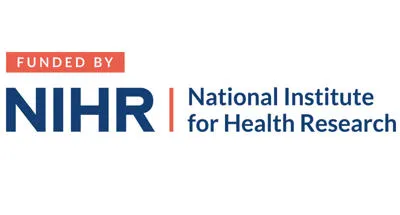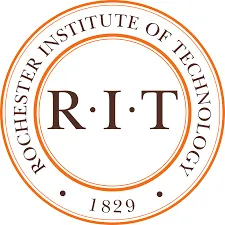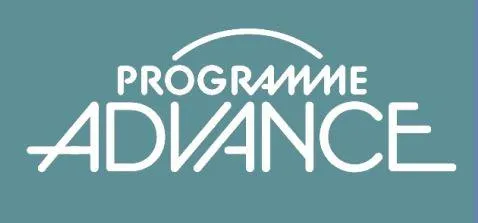Advancing theory and treatment approaches for males in substance misuse treatment who perpetrate intimate partner violence.
Professor Gail Gilchrist lead this National Institute of Health Research funded Programme Grant for Applied Research (RP-PG-1214-20009) which ended in June 2022.
Professor Gilchrist said: “Substance use is a known risk factor for intimate partner violence (IPV), yet most perpetrator interventions do not address substance use. This research brings key stakeholders together from both the domestic violence and substance use sectors to develop an evidence based intervention to address both substance use and IPV. We believe that providing integrated interventions that address both IPV and substance use in substance use treatment settings will ensure more perpetrators are reached and better outcomes are achieved for perpetrators, survivors and their children, which should in turn reduce costs for the NHS, social and criminal justice services."
The programme of research brings together researchers, practitioners, services users and policymakers from across King’s, the South London and Maudsley NHS Foundation Trust, University of Edinburgh, University of Bristol, University of Manchester, University of York, Rochester Institute of Technology (USA) and RESPECT, the UK membership organisation for work with domestic violence perpetrators, male victims and young people.
ADVANCE programme of research
Background and rationale
Intimate Partner Abuse (IPA) includes physical, sexual, psychological harm, financial abuse and controlling behaviour by a current/ex-partner. In the UK, 30% of women have experienced IPA. IPA impacts negatively on survivors’ health. The social and economic cost for victims of domestic abuse in year ending March 2017 in England and Wales was estimated at £66 billion. Reducing IPA and improving survivors’ mental health is a public health priority.
Substance use is associated with IPA perpetration. Men in substance use treatment are more likely than men in the general population to perpetrate IPA. Despite this, there is a lack of knowledge about how best to address IPA perpetration by men in substance use treatment and a lack of available interventions.
Aims
The ADVANCE programme has produced new evidence that has informed the development of a group intervention to reduce IPA by men receiving substance misuse treatment. This ADVANCE intervention is now being tested in substance use treatment services throughout the UK.
The programme of research has five workstreams:
Workstream 1 (completed)
To understand the role of substance use in IPA perpetration we conducted a meta-ethnography of 26 qualitative studies to explore how substance use features and differs in survivors’ and perpetrators’ accounts of IPA perpetration. We conducted narrative interviews with male substance-using perpetrators’ and their ex/current-partners’ about what contributes to IPA. Each partner was interviewed separately and by separate researchers to ensure no information was inadvertently disclosed putting victims at risk. The psychopharmacological effects of substance use (including intoxication, craving, and withdrawal) were rarely the only explanation offered for IPA. Male participants were more likely to describe IPA as uncharacteristic isolated events that arose from specific disputes - either aggravated by intoxication or withdrawal or about substance use and its resourcing - whereas women described enduring patterns of abusive behaviour often linked to intoxication, craving, withdrawal, and to disputes linked to raising funds for substances.
Workstream 2 (completed)
While therapies for perpetrators exist, few target men in substance misuse treatment. We conducted a systematic narrative review with meta-analysis to determine the effectiveness of interventions to reduce IPV by men who use substances. Nine trials (n=1,014 men) were identified. Little evidence exists for effective interventions for male IPV perpetrators who use substances.
Workstream 3 (completed)
A group of experts and lay people (including survivors and perpetrators) used findings from workstreams 1 and 2 to develop the ADVANCE group intervention for men in substance misuse treatment. A 3-day programme of training was developed for intervention facilitators and for women’s support service workers. The ADVANCE intervention is an integrated intervention targeting both substance use and intimate partner abuse simultaneously. ADVANCE focuses on developing participants’ strengths and developing healthy, non-abusive relationships. ADVANCE recognises intimate partner abuse as involving patterns of coercive, controlling and instrumental behaviours and addresses intoxicated abuse, but also recognises the role of acquisition, craving, withdrawal, and lifestyle (identified in our research).
The ADVANCE intervention delivered in substance use treatment includes:
- 1 individual session with a keyworker to set goals and motivate
- 1 pre-group orientation group session
- 12 core group weekly sessions delivered by 2 facilitators (one male and one female preferred)
- Optional booster individual session one-month post intervention
- Current or ex partners will be offered support from a women’s support service
Workstream 4 (completed)
Prior to undertaking an efficacy trial (i.e. does it work?), the feasibility (i.e. can it be done?) of delivering the ADVANCE group intervention was evaluated. The feasibility trial included 104 men attending substance use treatment services in three areas of England who had been violent or abusive to their female current or ex partners in the past 12 months. Men were allocated at random to receive the ADVANCE group intervention and substance use treatment as usual (n=54) or to substance use treatment as usual only (n=50). Support was offered to their female current or ex partners.
We ascertained whether it is possible to recruit men and their current/ex partners to the study, whether a group intervention for male perpetrators can be delivered in substance misuse treatment and what is the impact on the staff and services. Although there were some problems with retention, the feasibility trial showed it was possible to deliver the ADVANCE group intervention in substance use treatment services, that staff rated the programme highly, and that male participants who attended the group intervention were positive about its content and about the group facilitators.
Workstream 5 (completed)
We were planning to undertake an efficacy trial of the ADVANCE group intervention to reduce intimate partner abuse perpetrated by men, delivered face-to-face in substance use treatment. However, due to Covid-19 restrictions, we iteratively adapted the ADVANCE group intervention for digitally supported delivery (ADVANCE-D) with input from people with lived experience and service providers. ADVANCE-D comprises eight core sessions (an individual session, a ‘welcome’ video group and six fortnightly video groups) delivered by two trained facilitators, and 12 weekly self-directed website sessions to recap and practise skills learned in the group followed by a one-to-one video/phone coaching session with a facilitator. Linked support is offered to (ex)-partners. Sixty-five percent (45/69) of eligible men were recruited and 25 men were followed-up (25/49; 55.6%). Twenty-one (ex)-partners were recruited and 11 (52.4%) were followed-up. Forty men were offered ADVANCE-D. Of those followed-up, 68% of men and 73% of women reported a reduction in abusive behaviour perpetrated and experienced, respectively. Overall, the process evaluation confirmed it was feasible and acceptable to deliver ADVANCE-D remotely to men in substance use treatment with the correct risk and case management in place.
Outputs/dissemination
Local Learning Alliance (LA) of key stakeholders have met throughout the project to develop local cross-sector solutions to this complex problem, building on knowledge transferred from ADVANCE into practice. We have published papers and reports, have attended conferences and provided briefings to policy makers and practitioners based on the ADVANCE programme.
The interplay between substance use and intimate partner violence perpetration: A meta-ethnography
Dynamics of Domestic Abuse and Drug and Alcohol Dependency

Our Partners

University of York

Rochester Institute of Technology

RESPECT

Contact us
For any queries about the ADVANCE intervention, please contact Professor Gail Gilchrist.




